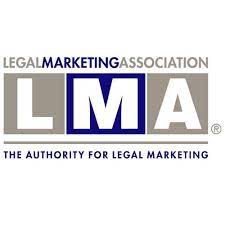Best Practices: Email Signatures for Law Firms
I always hate it when I cannot find the contact info of someone I am trying to call immediately. ” Even more annoying is when they ask you to call, but no where in the email thread is a phone number. Yes, I can usually look up their info on the web, but why waste that extra 30 seconds.
Basic Signatures
Make it easy for people to find you, put your contact info in every single response. Every standard email program has a signature field you can fill out. Use it.
You should put your signature in the initial sending and every reply. Keep it simple, with your name, business, phone, website, and perhaps your fax/email. Nothing fancy is needed, but putting it in every reply makes it super easy for someone to contact you once they get your email.
Disclaimers
I know as lawyers, we love to disclaim. However, is something like this really needed?
CONFIDENTIALITY NOTICE: This e-mail transmission (and/or the attachments accompanying it) may contain confidential information belonging to the sender which is protected by the attorney-client privilege. The information is intended only for the use of the intended recipient. If you are not the intended recipient, you are hereby notified that any disclosure, copying, distribution or the taking of any action in reliance on the contents of this information is strictly prohibited. Any unauthorized interception of this transmission is illegal. If you have received this transmission in error, please promptly notify the sender by reply e-mail, and then destroy all copies of the transmission.
IRS CIRCULAR 230 NOTICE:” To ensure compliance with recently enacted U.S. Treasury Department regulations, we hereby advise you that, unless otherwise expressly stated, any and all tax advice contained in this communication has neither been written nor intended by the sender or this firm for the use of any taxpayer for the purpose of evading or avoiding tax penalties that may be imposed pursuant to U.S. law. Furthermore, unless otherwise expressly indicated, the use of any tax advice contained in this communication has neither been written nor intended by the sender or this firm for the purpose of promoting, marketing, or recommending a partnership or other entity, investment plan or arrangement to any taxpayer, and such taxpayer should seek advice on the taxpayer’s particular circumstances from an independent tax advisor.
Seriously, WTF? I know that the IRS dipped its ugly head into the email arena last year when it published the Circular 230 and tax lawyers now have to put that into their emails. Of course, didn’t anyone complain at that time?” Did no lawyer or IT person speak up and say this is ridiculous?
Since we have a lot of lawyers as clients, I see there signatures on a daily basis. It surprises me that a lot of firms use that (or some slight variation) as their email signature. This is a waste of resources and waste of time for several reaons.
First, has anyone ever really read the full disclaimer?” I venture to guess that perhaps a law clerk or junior associate who wrote this initially read it, and perhaps the partner who approved it, but no one else has. No client, no opposing counsel, nor anyone else has ever read the disclaimers. So why use them if no one will read them?” Does it really protect the firm?” I am pretty sure that the disclaimer will not protect anyone in a court of law. Can you just imagine this scene:
“Sorry your honor, I did not mean to send this confidential email to the ATLA listserve. Can you please protect my client’s confidential business secret. I did have this two paragraph disclaimer at the bottom of the email. Everyone should have known by that to not forward the email on to their friends.”
Ridiculous.
Second, the disclaimers have a nasty habit of triggering spam filters. I have seen it time and time again, where law firms call wondering why their email is not getting to their clients. It’s because their clients are businesses and don’t want to be hit with spam. Often, the language in the disclaimer is what triggers the spam filter to block the message. Of course, perhaps it’s doing the client a service by blocking lawyer comments.
Finally, that message takes up 20 KB just on its own. I love it when I get an email from someone that says something short like “OK” and its followed by the large disclaimer. Now 20 KB is really not a lot of disk space for a single email, but if you multiply that by all the lawyers sending emails in the world every day, and you start to add up to some bandwidth savings:
1 Million Lawyers X 50 emails per day X 20KB = 1,000,000,000 KB of info in just disclaimers. That is 976,562 MB, or 953 GB per day of wasted space. Nearly 1 TB of information per day is just being wasted. Of course, this is the legal community, so waste of time / resources is not something new.
Anyways, if you must put the disclaimer in your email by law, then please do so. However, keep your confidential disclaimers short and sweet. Finally, make sure that your contact info at least proceeds all disclaimers.







